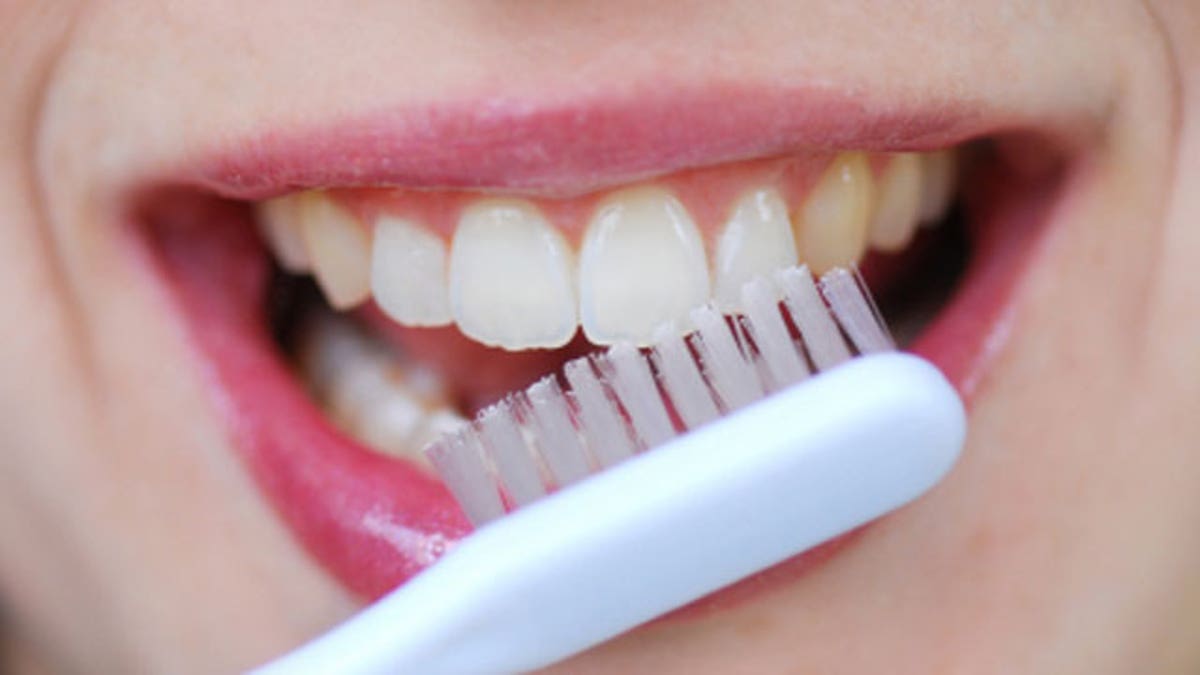
(iStock)
You wake up, shower, get dressed, and brush your teeth. Besides a trip to the dentist’s every six months, dental hygiene isn’t usually top of mind. It’s simply routine. You know what you’re doing, right? Well, as it turns out, there’s a method to the mechanics of brushing (and flossing).
(Sign up for our FREE newsletter to get clever kitchen tricks, gardening secrets, and more delivered straight to your inbox!)
Plus, let your dental hygiene fall to the wayside, and your health could pay the price. Issues like gum disease are actually linked to health conditions like heart disease. (Eek.)
So what mistakes might you be making every single morning without even realizing it? Below, common slip-ups (and their fixes).
1. You Haven’t Gone Electric
Bob Dylan and the Beatles did it with music, and you should with your toothbrush: “I always encourage people to get electric toothbrushes,” says Valerie Martins, DMD, a board-certified periodontist with a private practice in Beverly, MA. “They are the best.” Why? Martins compares the two to cleaning the floor with either a Hoover vacuum or a broom. Electric brushes oscillate faster, moving water and toothpaste at greater speeds—which makes them more effective at removing plaque, she says. These brushes also keep you from over-brushing. Plus, they time you (so that you’re really brushing for a full two minutes), buzzing every 30 seconds or so to alert you to switch sections in your mouth. Try brushes from Oral-B or Sonicare, suggests Martins. (Check out these 12 Things Your Dentist Knows About You Just By Looking In Your Mouth.)
2. Your Angles Are Off
Most of us tend to miss plaque at our gum line (which just so happens to be the most important area to tackle to prevent gum disease), says Martins. The fix is easy. You just need to reposition your brush. It shouldn’t be facing your teeth head-on, but rather positioned at a 45-degree angle into the gums, she says. (Who knew?) By keeping the bristles touching the line where your teeth and gums meet, you’ll keep buildup at bay. (Want whiter teeth? Make sure you’re not being duped by these 10 tooth-whitening myths.)
3. You Skip Floss
When the latest version of the Dietary Guidelines for Americans were released last month, there was one noteworthy omission: the suggestion to floss daily. The change stems from a review of research that failed to conclude flossing was effective in reducing long-term risk of gum disease and preventing cavities. But most dentists will still recommend it. Why? The big argument is that researching the effects of flossing takes more time—and doesn't come cheap. There aren’t downsides to the practice. You have to remove plaque in order to prevent disease, reminds Martins, adding: “Any floss is better than no floss.” So keep up with the practice, making sure your floss hugs your teeth on either side, she notes.
4. You Let Bad Breath Linger
You don’t need to scrape your tongue in order to keep your pearly whites in tip-top shape, but if you notice regular dragon breath, you might want to consider it. Bacteria can get stuck on the papillae, or little projections, on your tongue, says Martins. And that could mean stinky breath. But removing the bacteria with a tongue scraper can cut the stench, she says. Plus, you might notice other perks—here are 6 things that happen when you scrape your tongue for a month.
5. You're Pulling Instead Of Brushing
The practice of oil pulling—swishing oil in your mouth for a few minutes every day to firm up gums and improve dental health—is an Ayurvedic practice that’s 3,000 years old. It’s said to work by removing bacteria and perhaps improving dental health by way of antioxidants in the oils. A lot of the benefits, though, are anecdotal—because of a lack of scientific evidence, the American Dental Association doesn't endorse pulling. That said, as Martins puts it: “I wouldn’t discourage someone from doing it. I have seen people who have good dental hygiene and also oil pull who have good, firm gums,” she says. But that’s the key: Oil pulling shouldn’t replace brushing or flossing. Rather, if you like it or notice benefits, consider it an addition to your a.m. routine. (See what happened when one writer tried oil pulling for a month.)
6. You're Hyper-Focused On Fluoride
There’s no way around the fact that fluoride is controversial. Health establishments like the American Medical Association, the American Dental Association, and the Centers for Disease Control and Prevention endorse the fluorination of drinking water; dentists encourage fluoride treatments and fluorinated toothpastes to prevent cavities. But then there are the reported downsides, like research that links high levels of fluoride to lower IQ levels. Martins, for one, is a proponent of fluoride treatments and toothpastes with the ingredient to reduce the risk of cavities—even in adults.
But ultimately, fluoride (or a lack of it) isn’t the biggest issue at play in brushing—it’s whether or not you’re going through the motions correctly. “You can brush using water—it’s the mechanical removal that is so, so important,” says Martins. “As long as you're brushing or flossing, that’s the most important thing.”
